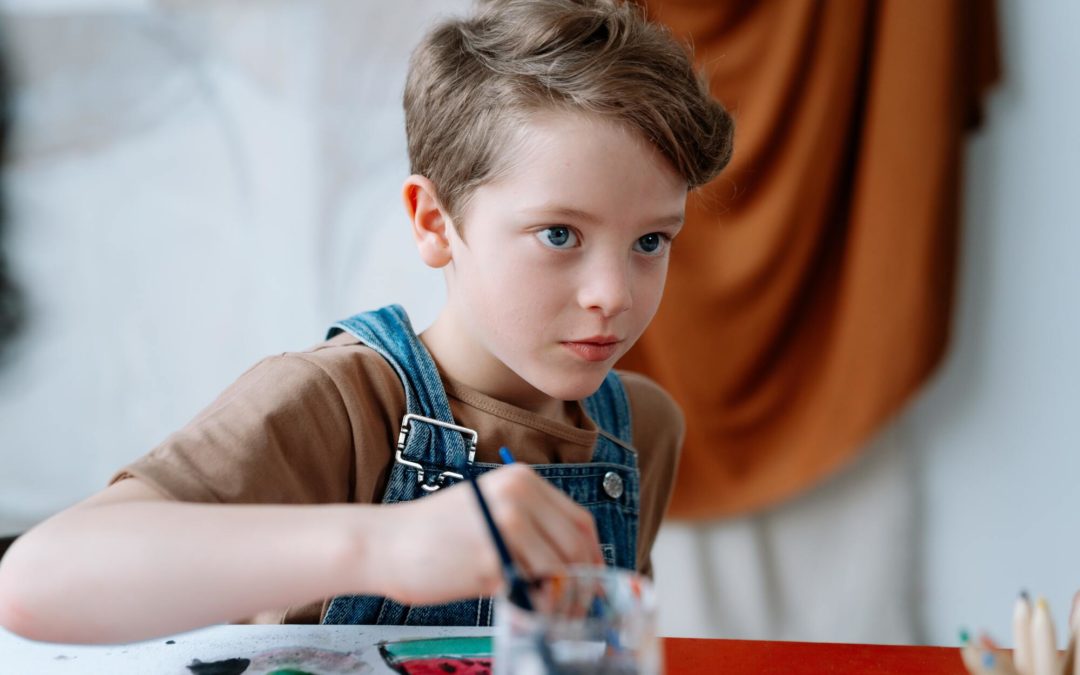Anxiety, even as a child, is perfectly normal, and in fact beneficial, to experience at times. It alerts us of potential danger and motivates us to do the things we are supposed to be doing.
There are times, however, where a child’s anxiety can become more of a consistent barrier and get in the way of living a full life. They might have difficulty functioning day to day, it may impact school work or their social lives, and it can even prevent them from doing the things that they love.
If you notice a more than usual amount of anxiety present in your child, they may have an anxiety disorder and require additional support. Beyond the support they receive at school and from a possible therapist, supporting them at home can make a substantial impact on their ability to cope.
- Notice the Signs of Anxiety
Learning the signs of anxiety can help both you and your child recognize it, label it, and therefore, more effectively manage it. Most of these signs are physical:
- Dizziness
- Headaches
- Stomachaches, diarrhea, or stomach distress
- Fatigue
- Nausea
- Sweating
- Feeling their heart is racing
- Feeling cold or hot
In many children, however, anxiety is displayed through their emotions. Very few children will come to you and say, “I am feeling nervous right now.” Instead, look for the following signs:
- Unable to focus or sit still
- Constantly asking for reassurance
- Displaying little confidence
- More irritability and anger
If your child struggles with anxiety, these signs will become easier and easier to recognize, and you will be able to determine how they are feeling and how to help them in a more efficient and productive way.
- Acknowledge and Empathize With Their Feelings
When our child expresses a concern, often a parent’s initial instinct is to tell them not to worry about it, and that it will all work out. The intention is to calm the child and reassure them.
However, this approach often backfires. The child feels as if their feelings don’t hold value. To them, the feeling of anxiety is real and palpable. The best thing to do in that situation is to acknowledge the feeling, then express confidence in the child.
For example, if your child is nervous about an upcoming dentist appointment, validate their nerves and that it is okay to feel that way, then tell them that you have confidence they will succeed. Even remind them of successful past experiences.
- Take Time To Connect Routinely
As parents, you have a lot on your plate. Between the kids’ activities, schoolwork, your own work and activities, and everything that goes into keeping that ship afloat, devoting additional time to something can seem like an impossibility.
However, setting aside a predictable one-on-one time slot with your child each day, especially during more trying months, can make a significant impact. Spend an intentional ten minutes (even set a timer) without any TV or phones, simply present with each other. The time together will eventually give you more insight into what’s going on in your child’s life that is making them anxious due to a tighter and more reliable bond.
- Work Together To Determine Solutions
Making a child a collaborator in problem solving can help them gain confidence and, as a result, reduce anxiety. If a child is left on their own to deal with their anxiety, they can easily become overwhelmed by it. Alternatively, if a parent rushes in to “fix” or remove any potential triggers, the child also becomes overwhelmed because any troubling instance then seems magnified.
Ask them to voice their thoughts, if possible, so you know what the root of the anxiety at the moment is. Encourage them to avoid any negative self-talk along the way to teach them how to treat themselves with more compassion. Guide them towards self-realization as best you can, which is the most effective way to grow. If that’s not something the child is ready for, help formulate a plan of action to work through a specific issue.
- Model Dealing With Anxiety
The majority of parents who are raising children that struggle with anxiety deal with it themselves. At this point, you might have some of your own strategies and techniques to reduce anxiety. Let your kids see your anxious moments and how you work to calm yourself down. They will learn from your example.
- Directly Teach Them Effective Strategies
At this point, taking a breath to calm down might be second nature to us. For children, though, anxiety can be very frightening, especially when they are not sure what to do with it. Spend time teaching directly some potential coping strategies. Practice a few to determine the one that seems to work best for your particular child. Some coping strategies to teach children are:
- finding a safe space
- taking a deep breath
- taking a walk
- taking a sip of water
- listening to a favorite song
- using a fidget toy
- counting to 10
- jumping jacks or other physical movement
- drawing or painting
Taking a deep breath is known to help reduce symptoms of anxiety. If your child is young, they might need direct instruction to learn to take a deep breath. Have them pretend to smell something (a warm cookie, a flower, a pizza), then blow on something (a birthday candle, cooling down the cookie). Doing this in times of stress can help the child refocus.
West Hills Academy proudly serves those who struggle in a traditional public school setting due to a variety of challenges, including anxiety. We work to create a safe and comfortable space where children who experience anxiety can thrive. If you have questions about our unique program, contact us here.
Resources:
https://childmind.org/article/what-to-do-and-not-do-when-children-are-anxious/
https://www.verywellfamily.com/strategies-to-help-an-anxious-child-4177327



